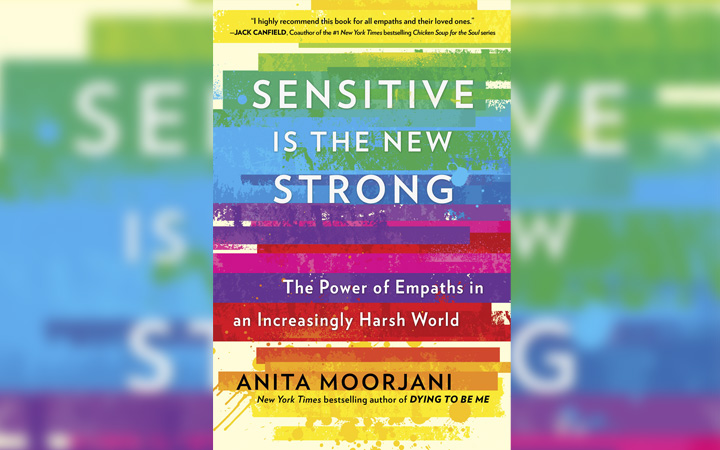Shifting Out of Regret

Golden Rule #1: You’ve Done Nothing Wrong
In order to realize the truth of “You did nothing wrong,” we need to use self-compassion, one of the soul’s attributes, to shift out of regret and into rejoicing. Self-compassion is the ability to be easy with yourself. It is the opposite of harshness. It is a moment of growth that requires no punishment, condemnation, or criticism, in order to learn from anyone’s actions. No matter how harsh of a world you feel you live in, no matter how ruthless of a past you may have endured, self-compassion says, “Can you just take one moment and be the nicest, most supportive and open-minded person that you are encountering right now?” Can you meet yourself as an ally instead of an enemy? Can you turn inward and say to yourself, “Hello, friend, how can I be here for you?”
Have you ever, in the midst of stress or turmoil, encountered a fresh breath of kind and attentive customer service, where someone just went a little bit out of their way to make sure that you were comfortable, served, and cared for?
Self-compassion is when you are that attentive to yourself. Self-compassion begins with accepting that you don’t have to necessarily know exactly what’s right about every moment of your life, but beginning with Golden Rule #1, you certainly know that you’ve done nothing wrong.
There is no doubt that you’re going to be better and better and better than you’ve ever been before, but that doesn’t mean that the way you were in the past was wrong. Simply because, in order to get to this stage of evolution, you and everyone else had to be exactly the way they were. From this perspective, every gift of expansion is life thanking you for playing the exact role in every person’s life, whether or not you were the most popular person in the room or even likable in your own experience.
All too often, the ego believes if you are not the most popular person in the room, you must be doing something wrong. Most likely because you’ve been trained to be fueled by the validation and approval of others. How many times have you felt that if someone else in your life doesn’t agree with you, you’re wrong? Contrary to this people-pleasing mechanism, Golden Rule #1 helps you see if someone doesn’t agree with you, it could only be because you both are on two different paths. If someone insists you should go right, but you know in your heart to go left, maybe this is where your paths take you both in different directions. Maybe we are walking together but not all following the same pathways home. Maybe we’re just accompanying one another, for as long as we’re meant to be, because we’re all going in the direction of our highest potential, which doesn’t always lead us in the same direction.
As you may already be starting to realize, it is impossible to see what is right in your reality if you spend time focusing on the things that you’ve done wrong. While the ego may perceive this Golden Rule as a bypass of self-responsibility, there is nothing to avert, avoid, or overlook at all. Because the ego perceives through beliefs of reward and punishment, it insists you must punish yourself, if others report harm or wrongdoing as a result of your choices.
Just because you’ve done nothing wrong, it doesn’t mean others are wrong for having their own perceptions of experience. You might not have done anything wrong, but neither has anyone else. Through the eyes of the Universe, you don’t need to project wrongdoing on yourself and others in order to offer the gift of forgiveness. In fact, the transformative power of forgiveness is prevented from healing your past and the atrocities of other people’s experiences when bumping up against the ego’s categories of right versus wrong. There may very well be experiences that have happened to you where the choices others made were categorically opposite to the ethics and values of your consciousness. There may be feelings of unfairness; feelings of being taken advantage of; anger toward perpetrators; or resentment against those who didn’t listen, believe, or act assertively in your defense. Whether due to betrayal, neglect, or abuse, it is not wrong to feel exactly the way you do. While I am here outlining the trajectory of healing that each moment of pain inspires, I would ask you to be easy with yourself, offering the gift of self-compassion that reminds you, “You may forgive at some point, but it doesn’t have to be today, next week, or even in the foreseeable future.”
True forgiveness occurs as a result of free will. Often times it is giving yourself the right to not forgive that loosens the ego’s inner grip of protection that allows forgiveness to be offered from a more authentic space. Forgiveness isn’t a matter of saying any betrayal, neglect, or abuse was deserving. It’s a matter of acknowledging that those who have made an indelible impression upon your history have only set you in a direction toward the arrival of your highest destiny. It’s very easy to say thank you for the pleasurable experiences others provide, but it’s an entirely different paradigm to slowly move in the direction of authentically thanking everyone for their contribution in your journey—even when their actions were the opposite of the love and safety your innocence wanted and needed.
Such a level of unconditional love exists outside the domain of ego, so it’s natural for such a Golden Rule to merely remind you where you are in your journey. Since you’ve done nothing wrong, it isn’t wrong or unjust to refuse forgiveness for the actions of others. You must have the right to withhold forgiveness in order to build up the courage to offer it.
Excerpt from The Universe Always Has a Plan: The 10 Golden Rules of Letting Go by Matt Kahn (Hay House Inc., March 24, 2020)

 bout the Author
bout the Author




